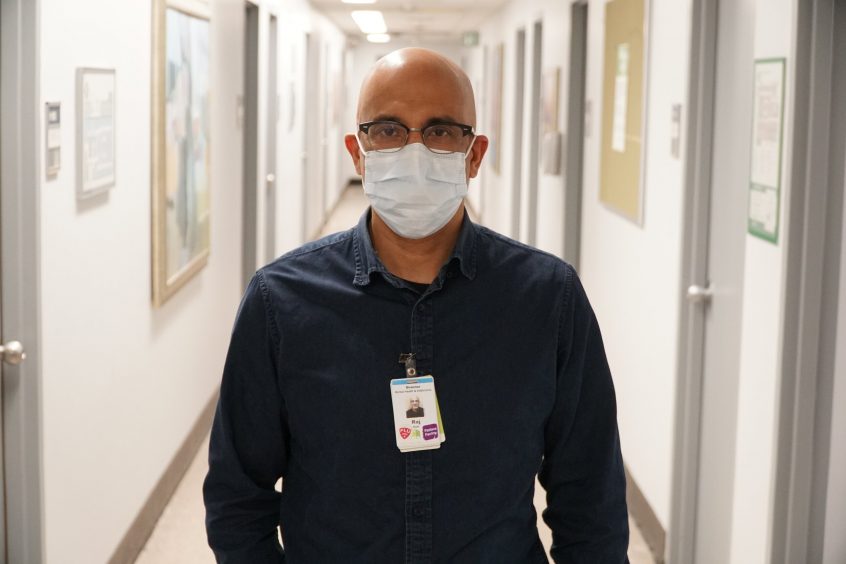#OneEastToronto shares the faces of East Toronto Health Partners (ETHP), a group of more than 50 community, primary care, home care, hospital and social services organizations in East Toronto working together to improve the way local residents access and receive care. Meet Raj Sohi, director of mental health and substance use at Michael Garron Hospital (MGH) and South Riverdale Community Health Centre (SRCHC).
“My first job in healthcare more than two decades ago was a clinical role where I had the opportunity to work with people seeking treatment for substance use. As soon as I started working in this area, I just felt a connection to my clients. Many of them were people who are marginalized and often were Black, Indigenous or people of colour. And, as a person of colour myself, I felt like I could bring a lot of value to this space that not many people seemed to be giving attention to at the time. I was fascinated by the work and I’ve stayed in this field ever since.
I think many people who are dealing with substance use and mental health issues often slip through the cracks. These individuals may be admitted to the hospital when they’re experiencing an episode and then discharged. But because they’re not connected with the right services in the community — whether that be harm reduction, counselling or other supports — they end up going back to the hospital. And they go through the cycle over and over again.
So a big part of my job — working between two healthcare organizations in East Toronto — is looking for opportunities for our mental health and substance abuse services to work in a more integrated way. For example, we’ve been working with midwives at SRCHC and MGH’s addictions physician lead and Maternal Newborn and Child program to improve hospital care for people who are pregnant and use substances regularly.
We’re doing this by having a nurse practitioner from MGH’s residential withdrawal management centre engage regularly with these clients at SRCHC with the hope that, by building this relationship, these individuals will be more likely to seek care at the hospital when they need it. We’re also hoping to hire a harm reduction worker who is employed by SRCHC but works within MGH. This person would act as a peer support worker or advocate for patients who use substances so care providers at the hospital have a better understanding of these clients’ needs.
These types of initiatives allow us to better engage patients with lived experiences of substance use. They help eliminate the stigmatization that these individuals may face in different healthcare settings so they can receive the care they need when they need it. Through projects like these, we help bridge the divide between hospital and community care to improve health outcomes for our patients so that clients in the hospital receive better linkages to community supports and clients in the community are able to access the level of care that a hospital provides.
I really appreciate that there’s so much interaction and collaboration that takes place within our East Toronto Health Partners network. I think many of us face similar challenges that we can navigate more effectively if we learn from and lean on one another. Being able to connect with key players from different organizations is amazing. And together, we identify issues and pool our resources in a way that’s not possible otherwise. I find that opportunity really exciting.”
Are you a member of East Toronto Health Partners (ETHP) who is interested in being featuring in our #OneEastToronto series or know someone who would be a great fit? Please email Lucy Lau, corporate communications coordinator at ETHP, at lucy.lau@tehn.ca.

